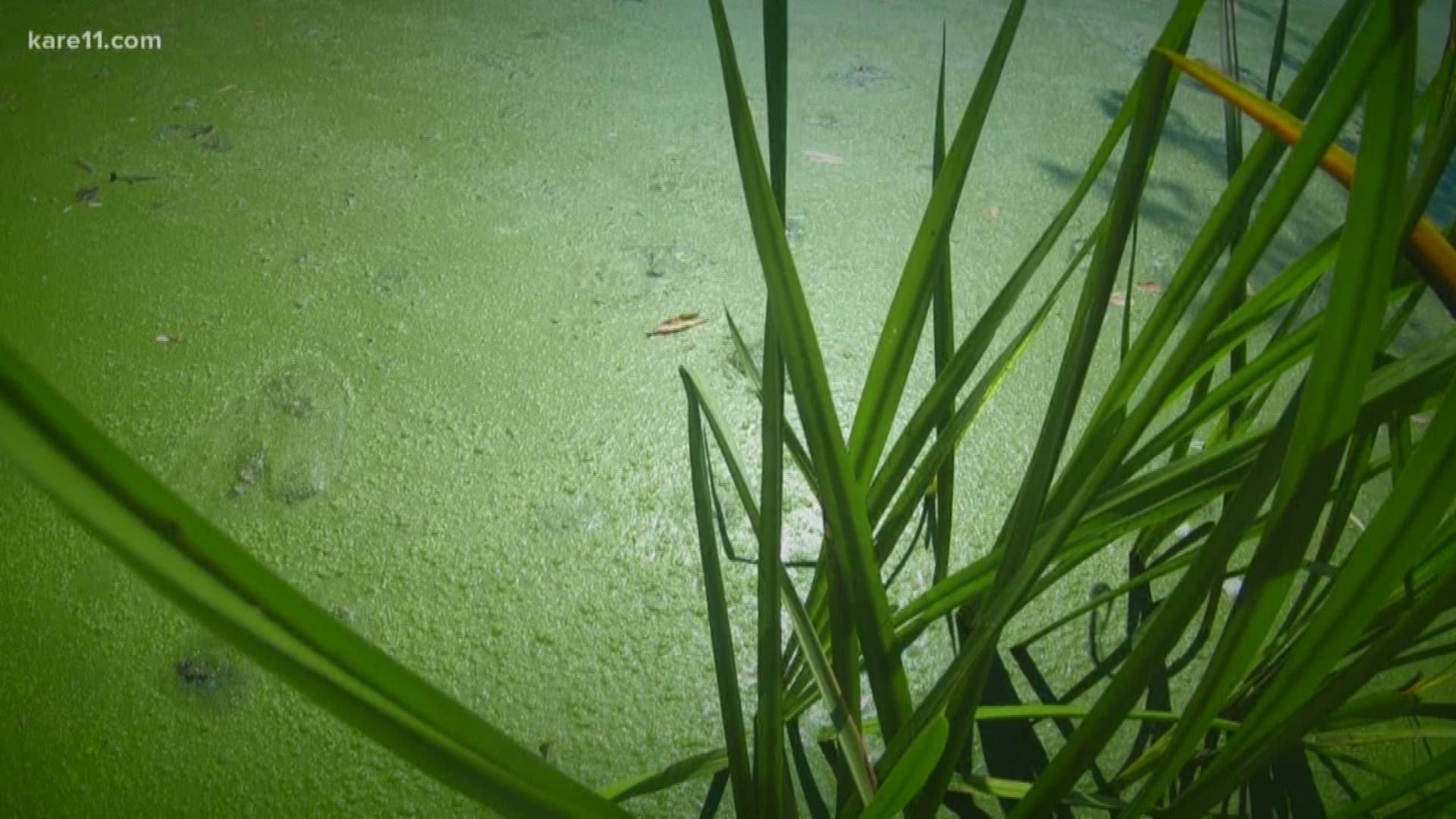MINNEAPOLIS — Editor's Note: The video above originally aired on Aug. 13, 2019.
The Minnesota Pollution Control Agency (MPCA) announced Tuesday that potentially toxic algal blooms could take over some Minnesota lakes and streams by July 4 weekend, citing spring rainstorms and rising temperatures as the main reasons for concern.
Reports of algal blooms have been cited in lakes across the state, including Lake Hiawatha and Lake Harriet in Minneapolis, leading to swimming advisories.
“Holiday weekends typically see more people out on Minnesota lakes to boat, fish, and swim, and due to this year’s conditions, we need everyone to remain vigilant in looking for potentially harmful algae,” MPCA Monitoring Supervisor Lee Engel said in a statement Tuesday.
The MPCA advises Minnesotans to stay out of any lakes and streams that appear green and slimy, especially if it has a bluish-green color.
If this is the case, the algae may contain toxic bacteria that can sicken people and even kill dogs, livestock, and other animals within hours of contact.
People who encounter toxic algae could experience skin, throat, eye, and nose irritation and nausea, the MPCA said.
The agency said that if you come in contact with the blue-green tinted algae, you should rinse off the affected area with clean water afterward.
So how exactly do these nuisance blooms pollute our great Minnesota lakes?
Warm water temperatures and an excess of phosphorous in lakes make the “perfect” ingredients for algal blooms that can ruin anyone’s July 4 weekend.
The MPCA says "25% of Minnesota’s lakes” already contain levels of phosphorous and algae that are too high, not meeting standards for recreational use.
The MPCA said that you can prevent phosphorous in local lakes by:
- Using phosphorus-free lawn fertilizer, keeping grass clippings and other yard waste out of storm drains, and picking up after pets.
- Planting deep-rooted native plants along ditches, lakes, and streams to slow down and filter runoff.
- Managing manure responsibly to keep it out of lakes and streams.
You can report suspected harmful algal blooms by email photos to algae.mpca@state.mn.us
“If in doubt, stay out,” Engel said a few weeks ahead of the highly anticipated holiday weekend full of lake traffic across the state.
Watch more local news:
Watch the latest local news from the Twin Cities in our YouTube playlist:

